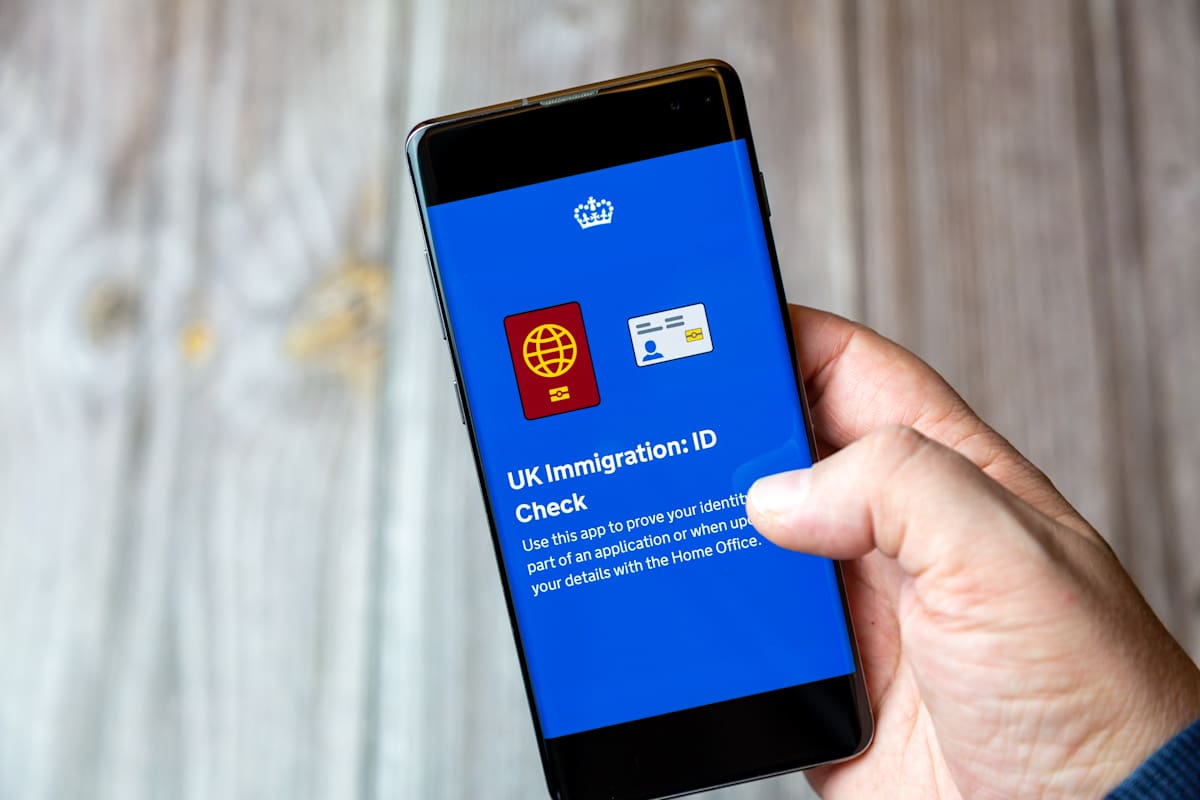The United Kingdom is set to make a formal shift to electronic visas as part of the government’s digital immigration system. At the same time Labour MPs are calling for the implementation of digital ID cards.
The UK is set to [1] transition from traditional physical visa documents to an electronic visa system, known as the eVisa. This online representation of immigration status is directly associated with an individual’s passport. Millions of individuals currently possess eVisas, which were created to substitute biometric residence cards or BRCs, passport endorsements, and vignette stickers found within passports. A press release in February, 2025 reported [2] that over 4 million individuals holding UK visas have successfully set up accounts to access their electronic visas. However, approximately 600,000 people have yet to transition from their physical documents to the eVisa system.
Seema Malhotra [3] who is the Minister for Migration and Citizenship said, “Today’s encouraging eVisa statistics show that a significant majority of the immigration status holders who needed to take action have done so. We continue to listen carefully to feedback, and our confirmation that expired immigration documents can be used for travel until June this year will help to further ensure the transition to eVisas continues to be as smooth as possible.” The UK government [4] said it has been shifting from traditional physical immigration documents to electronic visas, claiming that this transition has proven effective, with millions of individuals now successfully utilizing eVisas. “The Home Office is developing a border and immigration system that is more digital and streamlined. eVisas, a digital proof of immigration status, are a key part of this transformation and will enhance visa holder and new applicant’s experience and increase the immigration system’s security and efficiency,” said the Home Office.
Recently, Labour MPs have [5] been pushing digital IDs as part of the broader digital transformation policy. Over 40 members of the party have expressed their support for the implementation of a new digital ID system, urging government ministers to take action against unregulated migration and enhance the efficiency of public services. One of those MP’s endorsing the digital ID or Britcard is [6] Polly Billington, she claims on her [7] official website that digital ID has the potential to combat these issues by addressing modern slavery and improving wages and employment rights for legal workers. “Reform and the Conservatives love to talk tough on tackling illegal migration but fall oddly silent when it comes to offering genuine solutions. From championing the failed Rwanda scheme to voting against Labour’s crackdown on criminal smuggling gangs, they carp from the sidelines while we get on with the tough job of ending the crisis in the English Channel,” said Polly, “Digital ID cards are completely normal in most countries and go a long way to prevent migrants without legal status from accessing public services or working in the illicit economy, where they undercut the wages of legal workers. That’s why I’m supporting this call from Labour MPs for the government to make this pragmatic change, so that we can secure our borders and disincentivise people from making these dangerous journeys across the channel.”
In June 2025, [7] the UK Data Bill officially received Royal Assent solidifying its status as law and creating a legal framework for the acceptance of digital verification. In addition, the bill sets the groundwork for the establishment of the new Office for Digital Identities and Attributes within the Department for Science, Innovation, and Technology. This office will oversee the certification process for the Digital Identity & Attributes Trust Framework, which has now been rebranded as Digital Verification Services. However, barrister Raj Joshi [8] cautions that the implications are significantly more severe. By referencing historical contexts, legal precedents, and real-life instances, he elucidates how this identification scheme could jeopardize civil liberties for all individuals.
Raj Joshi says BritCard is anticipated to debut in the next 3 years, with the requirement that all adults obtain one. “Schemes like this rarely stay within their original limits. They grow quietly, not always through new Acts of Parliament, but through statutory instruments, ministerial orders and guidance documents. Local authorities adopt them. Private companies rely on them. And once access to basic services is linked to a central identity system, it becomes harder and harder to opt out,” said Joshi, “We already have the law. We already have penalties. What we don’t need is a new database that tells us who can work, rent or even ‘exist’ in the eyes of the Home Office. The BritCard is a solution in search of a problem. It opens the door to more control and fewer rights. If we care about what kind of country we live in, now is the time to say ‘no’,” Joshi concluded.
